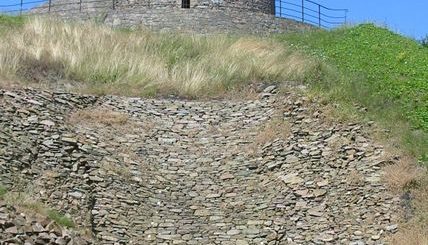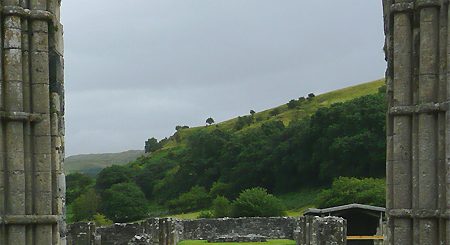Anchorites and Anchoresses
Anchorites and anchoresses would live in religious solitude bricked up in a hut or cell known as an anchorhold attached to the side of a medieval church. This was a special vocation and the bricking up of the chosen anchorite was usually presided over by the bishop. In order for the anchorite to participate in the services and Holy Communion there was a small window (a squint) created in the wall the anchorhold shared with the church. Another small window would allow charitable donations of food or alms to be passed to the anchorite from either the street or graveyard, sometimes by benfactors or clients needing the anchorite to pray on their behalf.
 Anchorites declined in popularity during the Reformation and anchorholds were either demolished or converted to another use, such as a vestry following the Dissolution of the Monasteries.
Anchorites declined in popularity during the Reformation and anchorholds were either demolished or converted to another use, such as a vestry following the Dissolution of the Monasteries.
Archeological evidence of some Anchorholds still exists and examples can be found at All Saint’s North Street – York (anchoress Dame Emma Roughton circa 1421), Letherhead Church – Surrey, Chester-le-Street – Durham, St Julian’s – Norwich (anchoress Julian of Norwich (8 November 1342 – 1416), Compton Church – Surrey and All Saints, Fishergate – York (anchoress Lady Isabel German). There are records suggesting there were as many as 10 anchorites/anchoresses in York.




Re: Anchorites and Anchoresses
The Ancrene Wisse dating from the early 13th century was a guide for Anchoresses with such great advice as:
“You shall not eat meat or fat [but] eat as many vegetables as you like; accustom yourself to little drink. Do not on any day fast on bread and water unless you have permission.”
“It does not matter whether your clothes are black or white so long as they are plain, warm and well-made. No-one must wear linen next to the skin (unless it is made of tow or coarse flax). You must sleep in a gown belted at the waist, but loosely enough to allow the thickness of your hand between.”
“You shall have your hair cut four times a year.”
“Unless need compels you …you must not keep any animal except a cat.”